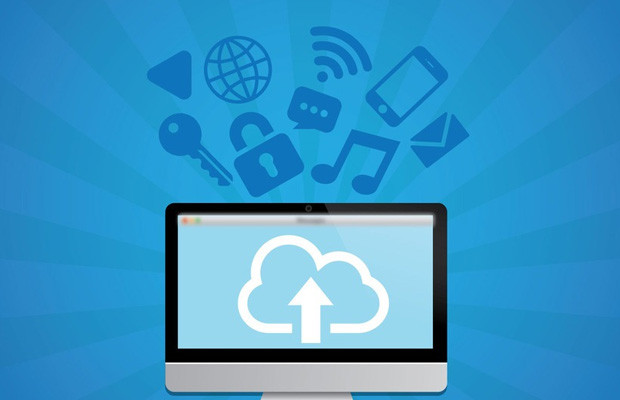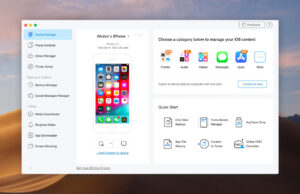The Pros And Cons Of Public, Private And Hybrid Clouds

By now, you’ve heard about the cloud and you’ve also likely heard about the benefits of using cloud computing for your business or enterprise.
But people outside the world of IT may not know that there are multiple types of cloud — and we’re not talking about cumulus versus cirrus. Have you heard of the “private cloud” or the “hybrid cloud”? Do you know the advantages of each?
While there isn’t a specific industry or workload that universally makes sense for each type of cloud, there are certain considerations enterprises should take into account when deciding upon the right fit: For example, does the company frequently handle sensitive customer information online? Do they have a highly secretive recipe or patented design that needs to be protected? In these cases, public cloud computing may be a riskier choice.
If you’re at a loss when it comes to the intricacies of various types of cloud, we’ve prepared a quick primer to help you sort through the different technologies, including a few key pros and cons.
The public cloud
In a nutshell, the public cloud is generally the most well-known and straightforward type of cloud computing. Public commodity cloud providers typically offer convenience — it’s easy for enterprises and developers to set up, use and access the public cloud. Additionally, scalability is often a driving factor for businesses utilizing the public cloud. However, this type of cloud is not without risks.
Here’s a brief breakdown of some of the main characteristics of the public cloud:
- Easy to use: Some developers may favor the public cloud (at least in the U.S.) due to its ease of access. Generally, the public cloud operates at a pretty fast speed, which is also alluring to some enterprises.
- Typically a pay-per-use model (cost-effective): Often, public clouds operate on an elastic pay-as-you-go model, so users only need to pay for what they use — some versions of public cloud are even free but price increases when larger workloads are migrated to the cloud.
- Operated by a third party: The public cloud isn’t specific to a single business, person or enterprise; it is constructed with shared resources and operated by third-party providers.
- Flexible: Public clouds allow users to easily add or drop capacity, and are typically accessible from any Internet-connected device — users don’t need to jump through many hurdles in order to access.
- Can be unreliable: Public cloud outages have made headlines in recent weeks, leading to headaches for users.
- Less secure: Particularly outside of the U.S. where data sovereignty comes into play (where your data is stored and who may have access to it), the public cloud often has a lower level of security and may be more susceptible to hacks. Some public cloud providers also reserve the right to shift data around from one region to another without notifying the user -– which may cause issues, legal and otherwise, for a company with strict data security policies.
The private cloud
For businesses concerned about knowing exactly where their data is stored and having complete control over it — and who, ultimately, has access — the private cloud provides a higher degree of peace of mind. Additionally, private clouds may be the best option for companies that must jump through a lot of regulatory hurdles or handle sensitive data, or for companies concerned over their own intellectual property being hosted on the public cloud.
Managed private clouds are one specific form of this type of cloud computing: This service refers to clouds that, though specific to an individual business, receive some assistance (such as operating service monitoring and patching) from a third party. This allows for a company to select the custom cloud model that fits its needs while leveraging secure third-party help for maintenance.
Here are the main features of private cloud computing:
- Organization-specific: Private clouds are developed specifically for one organization or enterprise; unlike the public cloud, they aren’t shared among many users.
- More control and reliability: Private cloud services and infrastructure are maintained onsite, or in a privately hosted environment such as a third-party data center. This gives an enterprise the utmost control over access — IT can know where information is deployed and can keep an eye on the boundaries that surround that data. Additionally, managed private clouds allow for strong service level agreements, which can increase reliability.
- Customizable: IT can customize storage and networking components so that the cloud is a perfect fit for the specific organization and its needs.
- More costly (arguably): Proponents of public cloud computing often tout its cost-effectiveness as one of the primary advantages. While private cloud may rack up costs due to increased management responsibilities and smaller economies of scale, it’s worth weighing the risks/costs of security.
- Requires IT expertise: Some companies may not have the infrastructure to completely build out and manage a custom private cloud within their own IT department -– it can require a good deal of up-keep. In these cases, a managed private cloud may be a viable option.
The hybrid cloud
The hybrid cloud allows for a “mix and match” approach, enabling enterprises and savvy CIOs the ability to pick and choose various elements from either the public cloud or private cloud -– or a combination of the two — that make the most sense for their particular company. For example, a company could host its ecommerce website — complete with customer credit card information — on a private cloud, but could also host its non-sensitive material (such as marketing collateral, etc.) on the public cloud.
Typically, the hybrid cloud provides a balance of convenience and security — and in fact, experts predict that 2015 will see a huge rise in the number of enterprises using hybrid cloud services. Enterprise cloud providers, often advocate a hybrid cloud approach, focused on a using the right destination for the right application that makes sense for individual business needs.
Here’s an overview:
- Flexible and scalable: Since the hybrid cloud, as its name suggests, employs facets of both private and public cloud services, enterprises have the ability to mix and match for the ideal balance of cost and security.
- Cost effective: Businesses can take advantage of the cost-effectiveness of public cloud computing, while also enjoying the security of a private cloud.
- Becoming widely popular: More and more enterprises are adopting this type of model.
Ultimately, hybrid clouds look to be a promising solution for the future.













 © 2024
© 2024
0 comments